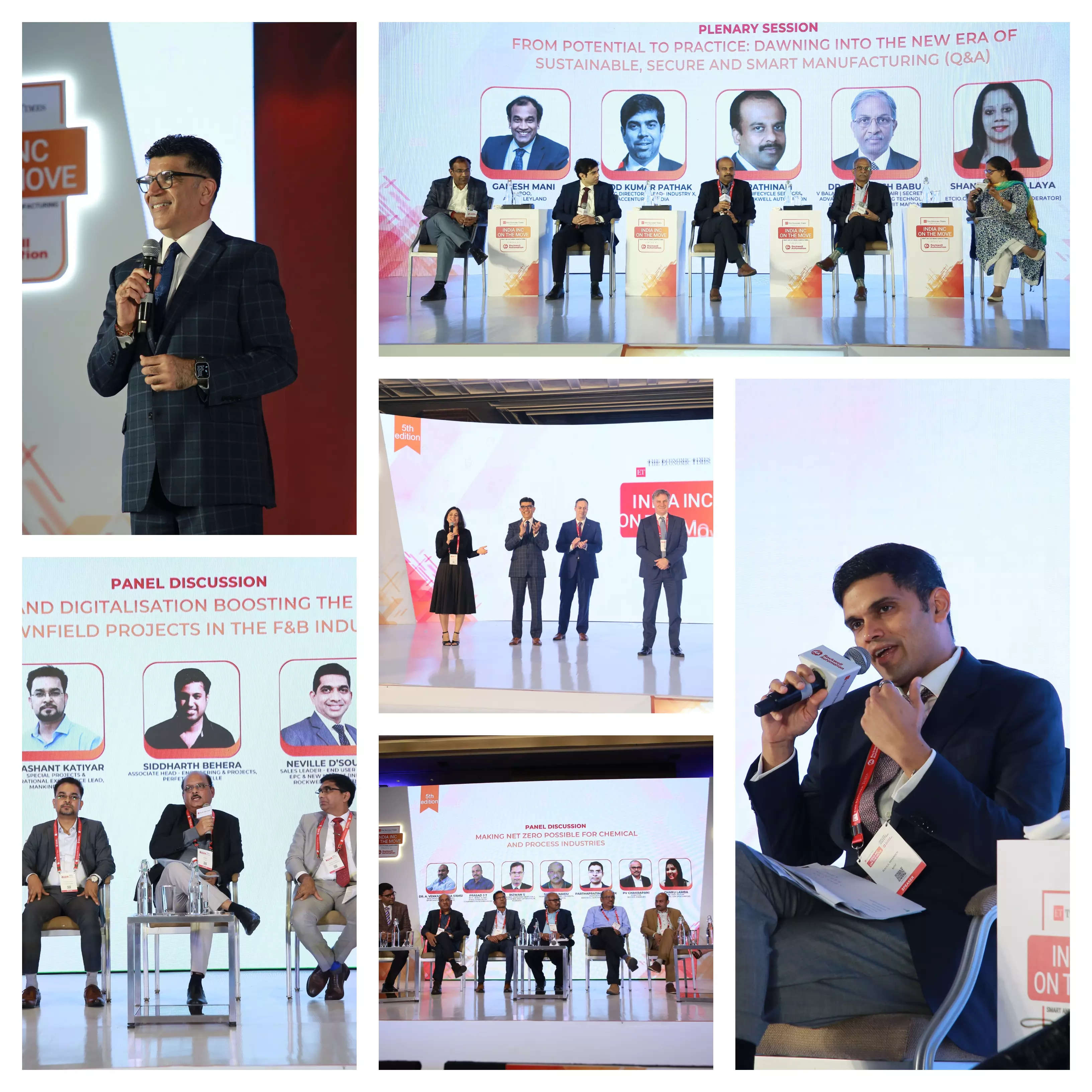
To shed light on the transformative journey of the Indian manufacturing sector and emphasize smart, sustainable practices, Rockwell Automation in collaboration with The Economic Times organized the 5th edition of ‘India Inc On The Move 2024’ (IIOTM) in Chennai.
The day-long event brought together policymakers, technologists, domain experts and stakeholders from across the sectors in the manufacturing industry to share their thoughts and ideas on factories of the future, enhancing efficiency, circular economy and the roadmap to fulfill the manufacturing sector’s trillion-dollar contribution to the country’s GDP.
In a special address, S Krishnan, Secretary, Ministry of Electronics and Information Technology (MEITY), Government of India, emphasized the importance of electronics manufacturing in the country. He noted that electronics manufacturing is particularly important as it is set to be, if not already, the single largest sector in manufacturing.
“India’s electronic manufacturing is worth USD 100 billion a year. About USD 200 billion to USD 250 billion is software production. We want this segment to grow to USD 1 trillion in 5 years,” the top official said.
Dilip Sawhney, MD, Rockwell Automation, shared how India is solidifying its space as the fastest-growing economy in the world. He also outlined how technology-enabling manufacturing has a huge role to play in this.
Matthew Fordenwalt, SVP, Lifecycle Services, Rockwell Automation, said, “Companies in India are putting up about 35% investments in manufacturing, compared to 23% in other markets.”
According to Daisy Chittilapilly, President, CISCO India & SAARC, Industry 4.0 adoption can help the manufacturing sector contribute to 25% of the GDP by FY2026.
Meanwhile, with the industry’s move towards newer technologies, Rahul Mammen, MD, MRF Tyres, expressed caution saying, “Return on investment (RoI) should be looked at before investing in digitization and automation. Do not be pressured just because someone else is doing it.”
Vinod Kumar Pathak, MD & Lead- Industry X, Accenture India, noted how sustainability is important for business survival and not just an option anymore.
System thinking is critical for sustainability. Science, engineering, and management are all equally important in business, pointed out Dr. N Ramesh Babu, Secy., Advanced Manufacturing Technology Development Centre, IIT Madras.
Shedding light on the automotive sector, Ganesh Mani, COO, Ashok Leyland said the commercial vehicle maker plans to achieve carbon neutrality by 2047 when the company turns 100. “After CNG, LNG is coming up in a big way as a fuel for the commercial vehicle segment.”
At the event, Rockwell Automation, working in the industrial automation and digital transformation domain, unveiled FactoryTalk DataMosaix, an innovative industrial data operations product line. This solution claims to facilitate the efficient harnessing of industrial data in a scalable manner, aligning with the industry’s shift toward smart and sustainable manufacturing.
Nandini Raisinghani, Director- Software Engineering, Rockwell Automation, said, “FactoryTalk Data Mosaix exposes industrial data in an Industrial Knowledge Graph to realize value through apps and analytics.”
Amol Deshpande, Group Chief Digital Officer & Head Innovation, RPG Group, shared how India is warming up to the idea of IT-OT. The IT industry has established itself over the past 3 decades, and the OT sector has an opportunity to adapt to it.
According to Inba Rathinam, Regional VP, Lifecycle Services, Asia Pacific, Rockwell Automation, there are 153 certified lighthouse factories globally and over 80 of them are in the Asia-Pacific region.
Positive on the India growth story, Sujoy Ghosh, VP & MD, First Solar, said India’s readiness to get into automation is even more than the West.
“The key element which is missing in India, is risk capital availability in deep tech,” Ganapathi Ramachandran, Chairman, Trigyn Technologies noted.
Matthew Kennedy, VP, Lifecycle Services | Global Capabilities & Innovation, Rockwell Automation added, “For adopting innovative technology, we need to take the approach of failing fast and failing cheap, and experiment on a smaller scale.”
A number of interactive plenary sessions and case studies at the IIOTM event advanced discussions on key strategies to achieve sustainable growth in the sector. Attendees got a chance to network with the subject-matter experts fostering connections and collaborations. The event also showcased interactive demos and expo areas offering a glimpse into the future of manufacturing technology.
You can access on-demand video recordings of the sessions here – https://iiotm2024.com/
















